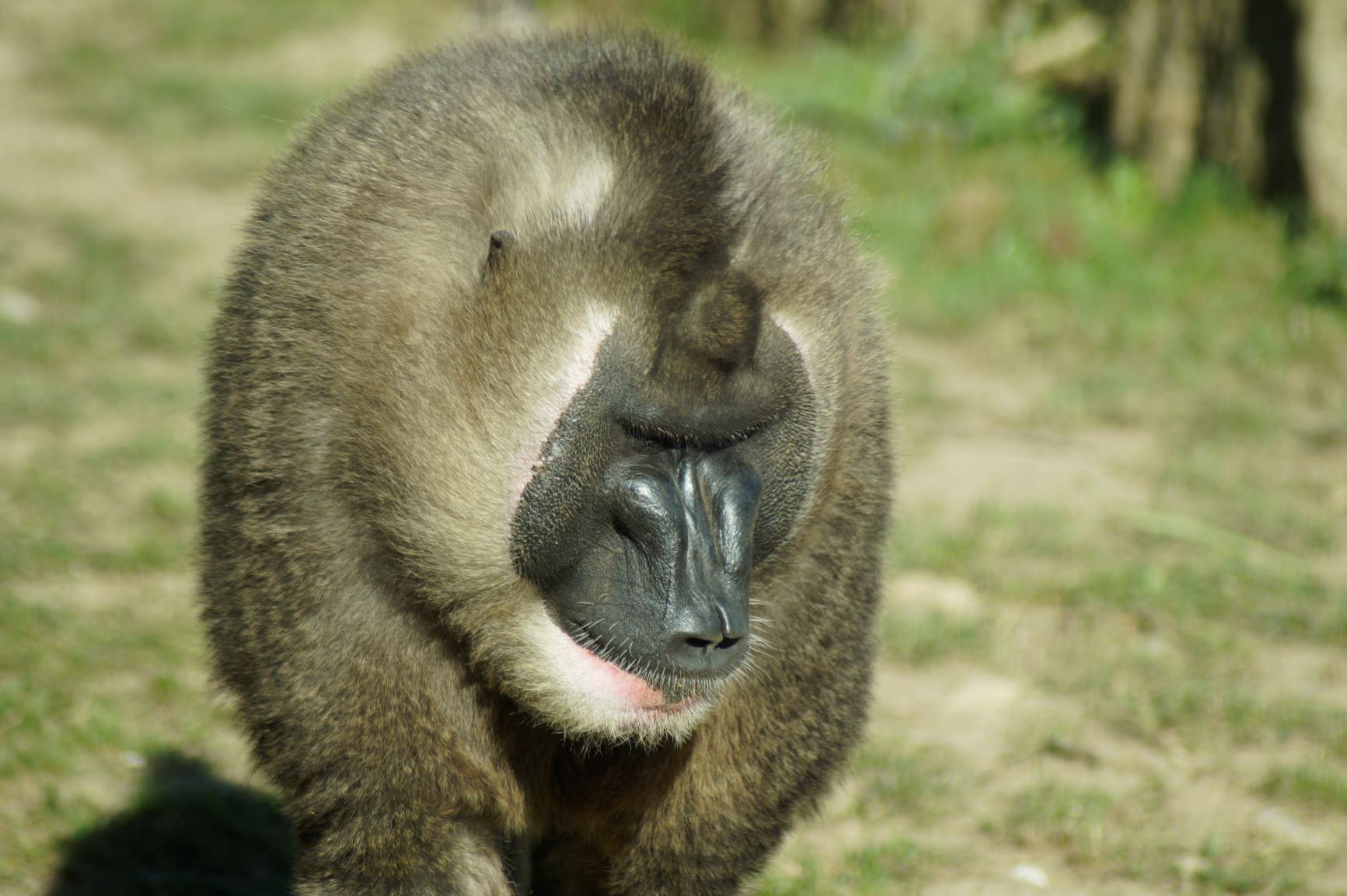Due to supporting Rettet den Drill (Save the Drill) he is in the focus of Charity Kalender again this year. But what kind of a monkey is the drill anyway? We put an eye on the animal, his situation in his countries of origin and his situation in the zoological gardens over the next weeks.
The Drill is at home in Nigeria, Cameroon and the island of Bioko, which belongs to Equatorial Guinea, and thus belong to the old world primates. Together with the mandrill he is summarized to the genus Mandrillus. While the mandrills are pretty famous due to the showy colorful face of the males, only few people have heard about the drills. The females of both species are even pretty similar, but the males mainly differ by the drills having a black face. The back of the male is very colorful though and shines in a variation of blue and purple – the more shining the higher is the rank of the animal. At a length of about 60 cm the males weigh about 30 kg, the females only a bit more than a third of it.
A drill group with about 25 individuals consists of a dominant male, a harem group of females and their offspring. Various group can merge together to a big squad of more than 100 individuals. At an age of 5 to 7 years the young males leave their birth group, while the females remain.
Drills live in the tropical rain forest. They are not tree residents though but mainly can be found on the ground. The forest offers protection for the animals and serves as food source. Drills are omnivorous and do not reject meat. Destruction of the rain forest for tropical wood and agriculture is the biggest threat for the primates, which are listed as endangered by IUCN. Drills play an important role for the ecosystem. By eating fruits they spread the seed in the forest and help trees and plants to grow. Probably about 5.000 animals are left in the wild, a massive loss of 50% over the last 30 years. Next to the loss of habitat they are hunted for their meat, or killed for planting banana, coconut or manioc plantations.
